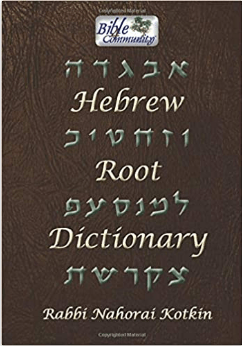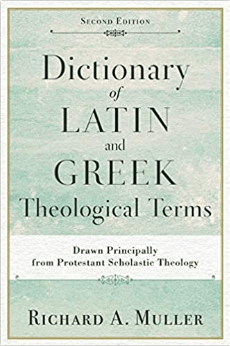
Among the oldest languages in the world, Hebrew is a native language to the Israelites and Judeans, spoken in Israel and across the world in Jewish diaspora groups. Hebrew is the language of the Torah and Tanakh, and is an ancient language. Many words in Hebrew are difficult to translate into modern language because of how old they are. Among many questions, one question people have is “what does the word holy mean in Hebrew?” Both curious outsiders and Hebrew-speaking Jews looking for the right path in their faith wonder this.
Hebrew’s Revival and Literal Translation
Before getting into the specific answer to this question, it’s important to understand why people even care so much. Hebrew is one of the first written languages and one of the oldest languages that is still spoken today, competing with the likes of Tamil, Sanskrit, and Chinese languages.
Hebrew was actually a dead language for many centuries and was revived by the Israeli government after Israel’s foundation as a country. This essentially makes Hebrew the only true example of a successfully revived language. Other language revival efforts have created partial languages or languages that are impractical in reality, but Hebrew is now spoken across the world natively by Jewish people.
(Interested in Hebrew and the Jewish history and civilization? Read here an article on how you can reach this goal.)
Hebrew’s revival matters because it makes answering the question “what does the word holy mean in Hebrew” harder to answer. Dead languages come from times when words carried different contexts and from when words had different meanings. Holy in Hebrew can translate into many different words. In a literal sense, the English word “holy” becomes קָדוֹשׁ which sounds something like “qadvush.” An alternative to this could be מְקוּדָשׁ which similarly sounds like “mqvidash.”
More Nuanced Theological Translations
With an idea of the literal translations for holy, what about something a little more nuanced? In English even, defining holiness and what is holy is difficult. Using a Christian lens, the seven holy virtues of the Bible might be a good start, although, with the widespread usage of English, more than just the Christian lens applies.
However, for the sake of argument, let’s define holiness in English as the seven holy virtues. What does the word holy mean in Hebrew if it is compared to the holy virtues? In the Rabbinic Jewish book Pirkei Avot פִּרְקֵי אָבוֹת which means “chapters of the fathers” line eighteen says that the word rests on “Justice, truth, and peace” with particular emphasis on peace, in the word שָׁלוֹם pronounced “shalom.”
The emphasis on the rule of law, and peace is reminiscent of Islamic law and tradition. This might imply that holiness in Hebrew Judaism is closer to Islam than Christianity.
While Christian holiness is based around compassion and care for the downtrodden, both Islam and Judaism place more emphasis on the maintenance of society and civil service.
This is, of course, not to imply that kindness and compassion are not well-regarded in both Judaism and Islam. All three religions place importance on these ideas. With that in mind, holy in Hebrew might indirectly translate to שָׁלוֹם pronounced shalom.
What Does the Word Holy Mean In Hebrew From a Linguistic Perspective?
With a literal translation out of the way, and a more theological one, there also is a linguistic way of looking at this. Hebrew is a Semitic language, being most closely related to Arabic and Amharic in today’s world. That means it shares similar grammar systems to these languages.
In Arabic, words are constructed using a system of root sounds that have simple meanings, which then have vowels and other consonants placed around them to create derived meanings from that root.
In the case of Hebrew, the root sounds that constitute holiness are Q-D-Š, hence the previous words “qadvush” and “mqvidash,” all of which feature the three consonants in their roots.
This raises the question of what does the word holy mean in Hebrew to an even higher level. Does holy translate into a series of 3 letters that can’t exist without further derivation? That would make holy essentially untranslatable into Hebrew, with only derivations of it available.
Holiness at a literal level is something more akin to a concept in Hebrew at a literal level. Constructing holy meanings out of the root consonants.
The problem with this is that even if it is accurate to say that holy translates into a series of roots, it’s not very useful for actual translation work.
An interpreter cannot explain to their client that holy translates into a series of roots with many derivations; so what does the word holy mean in Hebrew from a pragmatic viewpoint?
Contextual Explanations for the Word Holy
The word qadosh literally means “to be set apart,” and yet it uses the root consonants for holy. Within the context of the Torah and Jewish religious thought, this refers to the chosen Israelites who are, in a literal sense, set apart from the rest of humanity: God’s chosen people.
With that in mind, what does the word holy mean in Hebrew within the context of Judaism? While religion and language separate contexts, and Hebrew can exist outside of Judaism, some languages and religions are so tightly intertwined that doing so is counter-productive. Like with Punjabi and Sikhism, Hebrew and Judaism are tightly associated with each other and are difficult to separate. Holiness in Hebrew comes from the context of its culture and faith, it seems.
So, holy might best be translated as qadosh, which was used to describe the tribe of Israel. This served the dual purpose of setting them apart for their worship of God and calling them holy because of their faith. While it appears like a dual meaning, in reality, it is one meaning that can be translated into English separately.
This brings up another matter: what exactly does holy mean in English? Holy itself comes from the German word “heilig,” and it is related to words like “whole.” It is likely that today’s usage of holy as a word comes from the idea of people being spiritually complete: whole.
In a Christian English context, the seven virtues make up spiritual wholeness. Would it thus make more sense to translate holy into Hebrew as כֹּל pronounced “kil?”
Cultural Translations and Differences in Connotation
With the understanding that holiness in English comes from a concept of a multi-faceted set of virtuous traits that come together to create a whole spirituality, the equivalent in Hebrew would be something akin to that, maybe. Wholeness, in a more literal English sense, is anything that is entirely together or complete. Something like a whole meal, or a whole year.
This meaning loses all sense of holiness, despite the words being so strongly related. Within the religious context, whole is something like purity and pureness. Pure in Hebrew translates to טָהוֹר which sounds like “tahvr.”
The issue is that, like with whole, pure has a non-religious meaning that can be used in everyday speech. That isn’t to say that these terms aren’t used in religious contexts as well, but common usages dilute the meaning to some extent.
The connotations of both purity and wholeness are often positive and good. These connotations carry through into their Hebrew translations, for the most part, making them effective translations, but their usages in common speech may differ.
Since the words for whole and holy are not related words in Hebrew, unlike in English, the connection between the two likely doesn’t exist. The wholeness of spirituality in English does not translate into Hebrew, since the concept of the multi-faceted virtues that compose a virtuous human is not as important in Jewish culture.
Jewish religion rather espouses peace and law, and the maintenance of society as deeply important. These are all meanings derived from the holy books of the Torah, and the Bible, but today Jewish leadership is composed of people who are charged with interpreting and creating meaning from these texts. These people might have some say on what is holy as well.
The Meaning of Holy as Interpreted by Mankind
In a synagogue, Rabbis will teach their attendees about their idea of the meaning of the Torah and its lessons. While there are many orthodox interpretations and commonly accepted ideas within the Torah that just about any Rabbi would teach, there is always wiggle room for interpretation and creating new meaning.
The Torah strongly asserts the connection between being set aside, as in qadosh, with the idea of holiness. The idea that God has set the Jewish people apart from everyone else, and that Israel and the Jews are chosen.
The issue is that in a literal sense, if different equals holy, then a layman might interpret this to mean that being different in any way will be holy. Maybe dying your hair and wearing outlandish clothes is holy. This, of course, is not the intended meaning of the connection, and yet removed from the religious context, it wouldn’t be overly difficult to argue.
No Rabbi would teach the meaning of holy in that way; they would, of course, keep it within the context of Judaism and make the connection between God’s chosen people and holiness.
The concept of being the other has been pervasive in both Jewish culture and history, though, giving a surprising amount of credence to this way of viewing it. Standing out from those around you is one way to appear holy.
The important distinction is in what way you stand out. With an overly wide interpretation, being a criminal makes a person part of the “other” group in just about any society, yet criminality is diametrically opposed to Jewish ideas of holiness.
Thus, holy may best be translated as righteous otherness in Judaism. Putting that into Hebrew is difficult. Google translate gives צדק אחר which is pronounced “tsdq ahr.” At this point, though, the question of what does the word holy mean in Hebrew is being stretched a bit further than perhaps it should.
The Many Meanings of Holy

Translation is hard work, especially between heavily contextual terms in distant languages. In a literal sense, holy translates to qadvush and mqvidash, but literal translations are often unreliable. At a more technical level, holy is nearly impossible to interpret because Hebrew mechanics just don’t translate into English very well.
The idea that a word can be composed of a series of consonant roots that are surrounded by meaning-giving sounds is foreign to English, so translating holy into Q-D-Š is not particularly useful for an actual understanding of the language, despite it actually being perhaps as close as we can get to a true translation.
Looking at it from a theological perspective, the holy traits of Judaism could be considered in themselves translations of the idea of holiness from English, but the equivalent idea of holiness through character traits in Christianity is not as pervasive in Hebrew.
Culturally speaking, the connection in English of holiness and wholeness works well at a glance, but these two terms, when literally translated, don’t relate in Hebrew, making the connection culturally non-sequitur.
The cultural connection that does exist though is that being the chosen people of God is in itself holy. This is something which we can understand in English, but without Jewish leadership to interpret what sort of otherness is holy and what sort isn’t, it could quickly be conflated into forms of otherness that do not align with Jewish values.
Overall, it might be best to accept that translation is not always reliable, and that the best way to understand what holy means in Hebrew is to learn Hebrew and develop an understanding of the term through study and thought.
At the most literal level, though, the closest translation likely would be qadosh, which means “to be set aside,” and within the Jewish context, this almost certainly is as close as possible to a translation of holy.